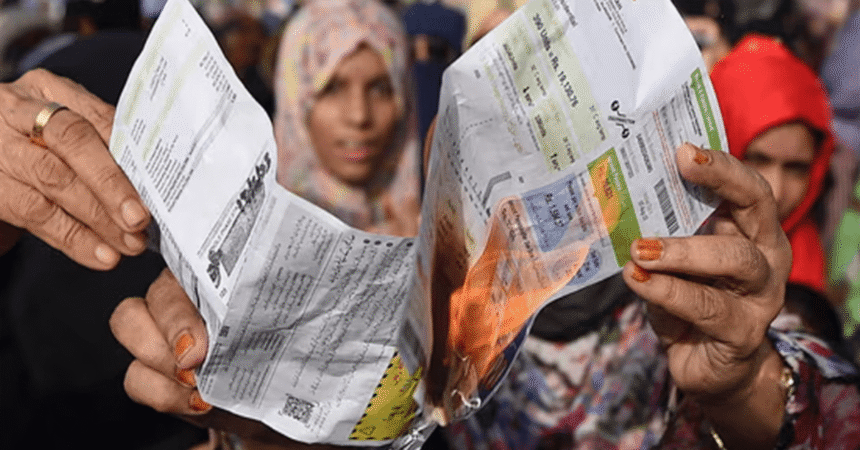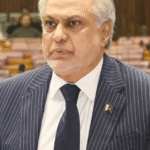In a pivotal meeting of the Senate Standing Committee on Energy, Senator Palwasha Khan addressed the pressing issue of overbilling in Pakistan’s power sector, shedding light on the struggles faced by everyday citizens. The meeting, chaired by Senator Mohsin Aziz, provided a platform for discussing alarming discrepancies in electricity billing, particularly a case involving Senator Khan’s sister that underscored the urgent need for reforms in customer service and billing practices.
Unpacking the Overbilling Issue
During the meeting, Senator Khan recounted a troubling incident related to her sister’s electricity bill in Lahore. Initially billed for 500 units, the bill was later adjusted to reflect 900 units, resulting in an exorbitant charge of Rs70,000, despite her sister having a 5kW solar power system installed. This dramatic increase raised significant concerns about the accuracy and integrity of billing practices within the power sector.
Senator Khan expressed her frustration over the prolonged struggle her sister faced in attempting to rectify the situation. Over the span of three months, she made 28 attempts to have the bill adjusted, yet her efforts went unanswered. “Overbilling is done to reduce line losses,” she stated, pointing to a systemic issue within the sector. The fact that the bill received was handwritten and lacked essential details about the units consumed only added to her concerns about transparency.
“What are they doing with the common man?” she implored, echoing the sentiments of countless consumers who feel powerless against a system that seems to prioritize profit over fair treatment.
The Financial Impact on Consumers
The financial implications of overbilling extend beyond individual households. For many families, inflated electricity bills can lead to significant financial strain. The case Senator Khan highlighted serves as a stark reminder of how billing discrepancies can impact budgeting and overall quality of life.
In a country where many citizens already face economic challenges, the added burden of inflated electricity bills can push families further into debt. Senator Khan’s example illustrates how such practices disproportionately affect vulnerable populations, raising questions about the responsibility of energy providers to ensure fair and accurate billing.
Minister Leghari’s Response
In response to the allegations raised by Senator Khan, Energy Minister Awais Leghari acknowledged the shortcomings within the power sector, particularly regarding customer service. He admitted that the lack of effective customer care is a major weakness within the institution, emphasizing the need for urgent reform.
Leghari’s candid acknowledgment of the issues plaguing the sector marks a significant step toward accountability. By recognizing the existing problems, the government can begin to take concrete actions to address them. He also indicated that discussions are underway to reduce the profit margins of independent power producers (IPPs), suggesting that there may be positive developments on the horizon.
“We expect to deliver good news through mutual consent in the coming weeks, ensuring there will be no violation of the agreements in place,” he stated, raising hopes for consumers who have long felt marginalized by the energy sector.
The Role of Independent Power Producers (IPPs)
The discussion around profit margins for IPPs is particularly relevant in the context of rising energy costs. IPPs play a crucial role in Pakistan’s energy landscape, providing a significant portion of the country’s electricity. However, their profit margins have often come under scrutiny, especially when consumers face steep electricity bills.
By addressing the profit margins of IPPs, the government can potentially lower costs for consumers. This move could not only alleviate some of the financial burdens faced by households but also foster a more competitive environment in the energy sector. The long-term goal should be to ensure that energy remains affordable for all citizens while maintaining a sustainable business model for power producers.
Addressing Customer Service Failures
One of the most pressing issues highlighted in the Senate meeting was the inadequacy of customer service in the power sector. Senator Khan’s account of her sister’s frustrating attempts to rectify her billing issue underscores a significant gap in the service provided by energy companies. The government must prioritize improving customer service as part of its broader reforms.
Investing in customer service training for staff, implementing efficient complaint resolution mechanisms, and utilizing technology to streamline processes are all critical steps that can enhance the consumer experience. Additionally, energy companies should establish clear communication channels to ensure that customers can easily report issues and receive timely feedback.
Consumer Protection and Accountability
The issues raised during the Senate meeting highlight the need for stronger consumer protection mechanisms within the power sector. Consumers must feel confident that they will be treated fairly and that their rights are protected. This could involve implementing stricter regulations around billing practices and ensuring that energy companies adhere to transparency standards.
Moreover, establishing an independent regulatory body to oversee the power sector could enhance accountability. Such an entity would be responsible for monitoring billing practices, investigating consumer complaints, and imposing penalties on companies that engage in unfair practices. This would create a more balanced power dynamic between consumers and energy providers, fostering trust in the system.
The Broader Context: Energy Sector Reforms
The issues facing the power sector are not isolated; they are part of a larger narrative surrounding energy production, distribution, and consumption in Pakistan. As the country grapples with energy shortages and rising costs, it is imperative to implement comprehensive reforms that address the root causes of these challenges.
Investing in renewable energy sources, improving infrastructure, and enhancing grid reliability are all essential components of a sustainable energy future. By diversifying the energy mix and reducing reliance on costly fossil fuels, the government can work towards stabilizing prices and ensuring energy security for all citizens.
Engaging Stakeholders in the Reform Process
To facilitate meaningful change within the power sector, it is crucial to engage a broad range of stakeholders. This includes not only government officials and energy providers but also consumers, advocacy groups, and industry experts. By fostering an inclusive dialogue, policymakers can gain valuable insights into the challenges faced by consumers and identify effective solutions.
Public consultations, forums, and workshops can serve as platforms for stakeholders to share their experiences and perspectives. This collaborative approach can lead to more effective policies that address the needs of all parties involved.
Conclusion
The issues of overbilling and inadequate customer service highlighted in the Senate Standing Committee on Energy meeting underscore the urgent need for reforms within Pakistan’s power sector. Senator Palwasha Khan’s testimony serves as a powerful reminder of the struggles faced by everyday citizens, prompting a call to action for lawmakers and energy providers alike.
As Minister Awais Leghari acknowledged the challenges within the sector, there is hope that positive changes are on the horizon. By prioritizing consumer protection, enhancing customer service, and addressing the profit margins of independent power producers, the government can work towards creating a more equitable energy landscape.
In a country where access to affordable and reliable energy is essential for economic development and quality of life, the time for reform is now. The power sector must evolve to meet the needs of its consumers, ensuring that every Pakistani has access to fair and transparent energy services.







